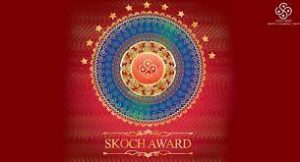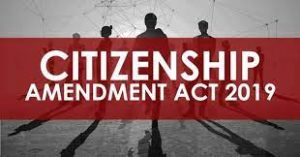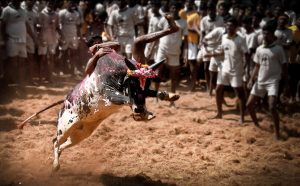Today Current Affairs: 11th January 2022 for UPSC IAS exams, State PSC exams, SSC CGL, State SSC, RRB, Railways, Banking Exam & IBPS, etc
Table of Contents
SKOCH Award:

The project named Mission Parvarish to combat malnourishment among children aged six months to five years has earned the SKOCH Award for southern Assam’s Cachar district.
- The programme was launched during the “nutrition month” in 2020.
- The programme entailed a coordinated socio-economic approach for malnourished children of families below the poverty line.
- Government agencies, local civic bodies, NGOs and businessmen had come together to provide nutritional support to such children.
- The Award instituted in 2003, SKOCH Award recognises people, projects and institutions that go the extra mile to make India a better nation.
- The Award is presented by the ‘Skoch Group’ for best efforts in digital, financial and social inclusion.
- It is given in the areas of digital, financial and social inclusion; governance; inclusive growth; excellence in technology and applications; change management; corporate leadership; corporate governance; citizen service delivery; capacity building; empowerment and other such softer issues.
IAC Vikrant:

After two successive high profile visits – the President and Vice President of India – within a span of less than two weeks, IAC Vikrant is heading out for the next set of sea trials.
- While the maiden sea trials in August last year were to establish propulsion, navigational suite and basic operations, the second sea trial later in October-November witnessed the ship being put through its paces in terms of various machinery trials and flight trials.
- INS Vikrant, also known as Indigenous Aircraft Carrier 1 (IAC-1), is an aircraft carrier constructed by the Cochin Shipyard Limited (CSL) for the Indian Navy.
- It is the first aircraft carrier to be built in India.
- It is named ‘Vikrant’ as a tribute to India’s first aircraft carrier, Vikrant (R11).
- The name Vikrant means “courageous”.
- The motto of the ship is “Jayema Saṁ Yudhi Spr̥dhaḥ”, which is taken from Rigveda and means “I defeat those who fight against me”.
- Vikrant is scheduled to be commissioned into service by August 2022, with flight trials of aircraft expected to be completed by mid-2023.
Harmonised Guidelines And Standards For Universal Accessibility In India:

The Central Public Works Department (CPWD) released the Harmonised Guidelines and Standards for Universal Accessibility in India 2021 through its website in December 2021. However, an official associated with the project said a few minor tweaks were pending.
- The guidelines are a revision of the Harmonised Guidelines and Space Standards for Barrier-Free Built Environment for Persons with Disabilities and Elderly Persons released by the CPWD, under the Ministry of Housing and Urban Affairs (MoHUA) in February 2016.
- Drafted by a team of the Indian Institute of Technology-Roorkee and the National Institute of Urban Affairs of the MoHUA, the revised guidelines aim to give a holistic approach.
- Earlier, the guidelines were for creating a barrier-free environment, but now we are focusing on universal accessibility
- The guidelines say ramps are extremely crucial for providing an accessible mobility option, but it is equally important to understand that ramps have to adhere to given guidelines.
- The guidelines provide the gradient and length of ramps — for example, for a length of six metres, the gradient should be 1:12. The minimum clear width of a ramp should be 1,200 mm, the guidelines say.
- The guidelines are not just for persons with disabilities (PwD), but for those involved in planning projects, from the construction of government buildings to master-planning cities.
- While making public buildings and transport fully accessible for wheelchair users is covered in the guidelines, other users who may experience temporary problems have also been considered.
- For instance, a parent pushing a child’s pram while carrying groceries or other bags, and women wearing saris.
Passport Seva Programme (PSP):

The government of India has announced that it will soon start issuing ePassports to citizens applying for a new passport or renewing their expiring passport.
- The announcement is under an agreement signed between the Ministry of External Affairs (MEA) and Tata Consultancy Services Limited (TCS) which will facilitate the next phase of the PSP (Passport Seva Programme) termed PSP-V2.0.
- The MEA-TCS collaboration has been a part of the passport process since 2008 and has helped in increasing digitisation of the complex process that requires multiple stakeholders across the spectrum of the vast Government network.
- Tata Consultancy Services will ensure “support functions” like “citizen interface, technology backbone, call centres, training and change management”.
- The Government will exercise “all sovereign and security related functions” in the process of issuing passports.
Passport Seva Programme (PSP):
- PSP is one of the several Mission Mode Projects (MMPs) of India.
- A Mission Mode Project (MMP) is an individual project within the National e-Governance Plan (NeGP) that focuses on one aspect of electronic governance, such as banking, land records or commercial taxes etc.
- The PSP-V2.0 is an expansion and improvement of the PSP-V1.0, an e-government tool that brought new changes to the delivery of passport-related services to individuals.
- The new initiative is aimed at creating a digital platform that would be “transparent, more accessible and reliable” and that it would be backed by a trained workforce.
- This will create a state-of-the-art digital ecosystem, overhaul existing processes and integrate various wings of Government that are involved in issuance of passports.
- The new programme is expected to have technology upgrades including the use of the latest biometrics technology, Artificial Intelligence, Advance Data Analytics, Chat-Bot, Auto-response, Natural Language Processing, Cloud Enablement.
- The newest feature under the PSP-V2.0 will be the issuance of the new generation of passports called e-passports.
E-passports:
- ePassport is an upgrade to the traditional passport and is aimed at making it more secure and ensuring smooth passage through immigration posts globally.
- The ePassports will be embedded with a chip that will include personal details of the holder including biographical information.
- The software for the ePassport has been developed by IIT Kanpur and the National Informatics Centre (NIC)
Citizenship (Amendment) Act, 2019:

The Ministry of Home Affairs (MHA) missed the deadline of notifying rules under the Citizenship (Amendment) Act, 2019 (CAA).
- Amidst the concerns related to CAA and for better clarity, the two parliamentary committees (committee on subordinate legislation) in the Lok Sabha and the Rajya Sabha had sought MHA to frame the rules that will govern the CAA.
- If the government does not make rules and regulations, a law or parts of it will not get implemented.
- The Benami Transactions Act of 1988 is an example of a complete law remaining unimplemented in the absence of regulations.
- The CAA provides citizenship on the basis of religion to six undocumented non-Muslim communities (Hindus, Sikhs, Buddhists, Jains, Parsis and Christians) from Pakistan, Afghanistan and Bangladesh who entered India on or before 31st December, 2014.
- It exempts the members of the six communities from any criminal case under the Foreigners Act, 1946 and the Passport Act, 1920.
- The two Acts specify punishment for entering the country illegally and staying here on expired visas and permits.
First Advance Estimates Of GDP:

The Ministry of Statistics and Programme Implementation (MoSPI) released the First Advance Estimates (FAE) for the current financial year (2021-22).
- According to MoSPI, India’s Gross Domestic Product (GDP) will grow by 9.2% in 2021-22.
First Advance Estimates of GDP first introduced in 2016-17, are typically published at the end of the first week of January. - They are the “first” official estimates of how GDP is expected to grow in that financial year.
- Apart from it, they are also the “advance” estimates because they are published long before the financial year (April to March) is over.
- The FAE is published soon after the end of the third quarter or Q3 (October, November, December).
- However, they do not include the formal Q3 GDP data, which is published at the end of February as part of the Second Advance Estimates (SAE).
- The main significance of FAE lies in the fact that they are the GDP estimates that the Union Finance Ministry uses to decide the next financial year’s budget allocations.
- From the Budget-making perspective, it is important to estimate the nominal GDP — both absolute level and its growth rate.
- This will further help in calculating Real GDP and inflation.
- The difference between the real and nominal GDP shows the levels of inflation in the year.
- Real GDP = Nominal GDP — Inflation Rate.
FAE Calculation:
- According to the MoSPI, the approach for compiling the Advance Estimates is based on the Benchmark-Indicator method.
- According to this, the estimates available for the previous year (2020-21 in this case) are extrapolated using relevant indicators reflecting the performance of sectors.
- The MoSPI extrapolates sector-wise estimates using indicators such as previous data of Index of Industrial Production (IIP), sale of commercial vehicles data, etc.
- Issues in Calculation of Data: The pandemic has upset many such projections because of significant fluctuations during the past couple of years.
- Due to this, the MoSPI has alerted that “these are early projections” which are liable for subsequent revisions depending on Covid, the impact on the economy and the government’s fiscal response.
Asian Infrastructure Investment Bank (AIIB):

Former Reserve Bank of India (RBI) governor Urjit Patel has been appointed vice-president of the Beijing-based Asian Infrastructure Investment Bank (AIIB).
- Mr.Patel will serve a three-year term as one of the multilateral development bank’s five vice-presidents.
- Asian Infrastructure Investment Bank (AIIB) is a multilateral development bank with a mission to improve social and economic outcomes in Asia and beyond.
- The Parties (57 founding members) to agreement comprise the Membership of the Bank.
- It is headquartered in Beijing.
- The bank started operation after the agreement entered into force on 25 December 2015, after ratifications were received from 10 member states holding a total number of 50% of the initial subscriptions of the Authorized Capital Stock.
Aim:
- By investing in sustainable infrastructure and other productive sectors today, it aims to connect people, services and markets that over time will impact the lives of billions and build a better future.
Membership:
- There are more than 100 members now.
Voting Rights:
- China is the largest shareholder with 26.61 % voting shares in the bank followed by India (7.6%), Russia (6.01%) and Germany (4.2 %).
- The regional members hold 75% of the total voting power in the Bank.
Jallikattu:

With a steep rise in the daily cases of COVID-19, the district administration in Vellore, Tiruvannamalai, Ranipet and Tirupattur, have banned the conduct of Jallikattu events, ahead of Pongal festival, as part of safety measures.
- The bull-taming sport is popular in Madurai, Tiruchirappalli, Theni, Pudukkottai and Dindigul districts known as the Jallikattu belt.
- Jallikattu is celebrated in the second week of January, during the Tamil harvest festival, Pongal.
- A tradition over 2,000 years old, Jallikattu is a competitive sport as well as an event to honour bull owners who rear them for mating.
- It is a violent sport in which contestants try to tame a bull for a prize; if they fail, the bull owner wins the prize
- Jallikattu is considered a traditional way for the peasant community to preserve their pure-breed native bulls.
- At a time when cattle breeding is often an artificial process, conservationists and peasants argue that Jallikattu is a way to protect these male animals which are otherwise used only for meat if not for ploughing.
- In January 2017, massive protests erupted across Tamil Nadu against the ban, with Chennai city witnessing a 15-day-long Jallikattu uprising.
- The same year, the Tamil Nadu government released an ordinance amending the central Act and allowing Jallikattu in the state; this was later ratified by the President.
- The amendment was subsequently approved by the President of India, effectively overturning the Supreme Court ban and allowing the sport to be played without any legal hurdle.
- PETA challenged the state move, arguing it was unconstitutional (Article 29(1)).
- In 2018, the Supreme Court referred the Jallikattu case to a Constitution Bench, where it is pending now.
Veer Baal Diwas:

PM Modi has announced the government decision to mark December 26 as Veer Bal Diwas in the memory of Guru Gobind Singh’s sons.
- This is a fitting tribute to the courage of the Sahibzades and their quest for justice.
- Guru Gobind Singh ji had four sons – Sahibzada Ajit Singh, Sahibzada Jujhar Singh, Sahibzada Zorawar Singh and Sahibzada Fateh Singh.
- All four of his sons were initiated into the Khalsa and all were executed by Mughal forces before the age of 19.
- Sikhism honors the illustrious martyred sons of Guru Gobind Singh ji in the prayer of ardas for their valor and sacrifice as ‘Char Sahibzade’, that is the four princes of the Khalsa warrior order
- The day marks when Sahibzada Zorawar Singh and Sahibzada Fateh Singh attained martyrdom when they were executed by the Mughals (1705).
- The brothers were captured with their grandmother Mata Gujari, the mother of Guru Gobind Singh.
- They were imprisoned with their grandmother and put to death by cruel Mughals on the orders of Aurangzeb, who attempted to suffocate them inside a brick enclosure.
- At the time of martyrdom, the ages of Zorawar Singh and Fateh Singh were 9 years and 6 years respectively.
- This sacrifice is seen as the bravest sacrifice for Dharma by any young boys in Indian history.




